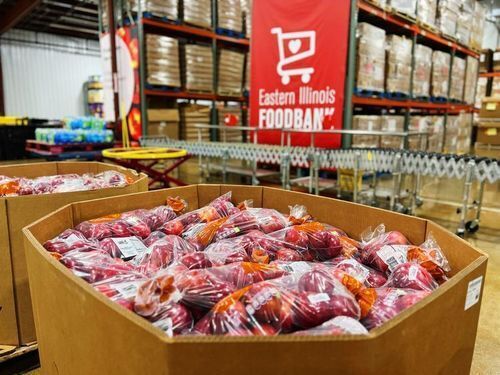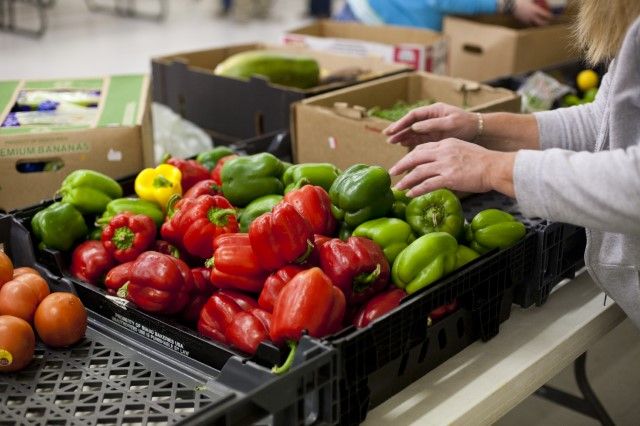EIF Facts

- Eastern Illinois Foodbank serves an 18-county area in Eastern Illinois covering just over 14,500 square miles.
- At any given time, more than 134,000 people in eastern Illinois face food insecurity.
- Pantries in our network are currently serving 90% more people than in 2022.
- Since 2019, child food insecurity in eastern Illinois has risen by nearly 40%. 1 in 6 children in our community currently experience hunger.
- The Foodbank does not directly serve clients. We provide food to agencies like food pantries, soup kitchens, snack programs, and shelters who serve our neighbors.
- In the past year, the Eastern Illinois Foodbank provided 11.1 meals—including 3.4 million pounds of produce—to more than 160 agencies and programs feeding our neighbors facing hunger.
- Through our network of pantries alone, EIF distributed food to more than 1.6 million people last year.
- Last year EIF provided almost 673,000 meals in rural and underserved areas on our Foodmobile.
- Through partners like Feeding Our Kids and Food 4 Kids, last year more than 87,000 backpacks of food were distributed to schoolchildren to combat weekend hunger.
- More than 80,000 students and their families were provided food through our School Market program last year.
- Our fleet of trucks traveled more than 201,500 miles last year, delivering food and picking up donated product.
- Every donation to Eastern Illinois Foodbank can have a huge impact! Each $1 donated provides three meals to a neighbor experiencing food insecurity.
- The Foodbank is an affiliate member of Feeding America; with its national network of food banks numbering over 200, Feeding America is the largest domestic hunger relief organization.
- Contrary to popular belief, the holidays are not a time of great need for food relief agencies. In fact, summertime is generally a time of highest demand, because children are out of school and there are increased financial pressures on parents.

